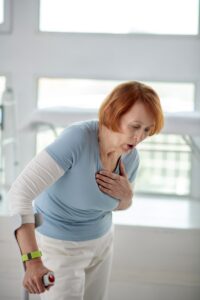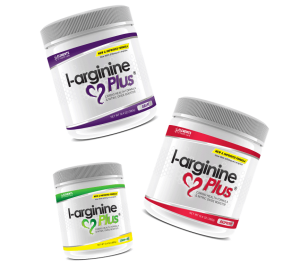Are you ready for a heart attack? The following are cardiovascular problems to be aware of and how they can warn you about heart disease.
Many people don’t realize that heart disease develops over time and that they might be developing it right now. For this reason, it’s important to be aware of certain cardiovascular problems that may be telling you your heart is in trouble. The following are different symptoms you need to be aware of if you’re trying to prevent heart disease.
1. Chest Pain
 Even though there are many causes of chest pain, angina is still the most common symptom of poor heart health. Some people can experience a heavy, crushing pain while others may only experience mild discomfort.
Even though there are many causes of chest pain, angina is still the most common symptom of poor heart health. Some people can experience a heavy, crushing pain while others may only experience mild discomfort.
2. Shortness of Breath
If your heart isn’t pumping blood efficiently, it can lead to fluid leaking into the lungs and cause shortness of breath. This is a symptom of heart failure and you may notice it during physical activity, when resting, or when lying flat on your back.
3. Wheezing
Chronic coughing or wheezing may be a sign that fluid is building up in your lungs. Moreover, you may be coughing up mucus that is colored pink or bloody.
4. Swelling in the Legs
Edema, or swelling, that happens in your legs, ankles, or feet may be a sign of cardiovascular issues. This happens as a result of poor circulation, causing blood to back up in your leg veins and fluid to build up in your tissues.
5. Narrow Blood Vessels
When your blood vessels (arteries, veins, etc.) become narrow, it increases your risk of having a heart attack. It leads to poor circulation, which may cause pain, discomfort, or numbness in your legs, among other symptoms.
6. Fatigue
It’s okay to need more rest every now and then, but when you have chronic fatigue and it comes on suddenly without explanation, it may be a sign of a more serious issue. For example, if you feel more tired than normal, you don’t have the energy to do your daily activities, and you experience sudden and severe weakness, you may be having heart problems.
7. Fast or Uneven Palpitations
When your heart can’t pump blood efficiently, it may beat faster as a way to keep up. However, if your heart is racing or throbbing, it can be a sign of an arrhythmia.
The Outlook
 It’s important that you know how to recognize these signs so that heart disease doesn’t take you by surprise. If you’re experiencing any of these symptoms, don’t wait – contact your healthcare provider immediately.
It’s important that you know how to recognize these signs so that heart disease doesn’t take you by surprise. If you’re experiencing any of these symptoms, don’t wait – contact your healthcare provider immediately.
One of the best things you can do to avoid these issues is to practice healthy lifestyle habits. For instance, you can exercise regularly, eat healthily, and take supplements like L-arginine Plus. Its ingredients promote circulation, blood pressure, cholesterol, and more. To learn more about this supplement, read our L-arginine Plus reviews and see if it provides what you need right now.

